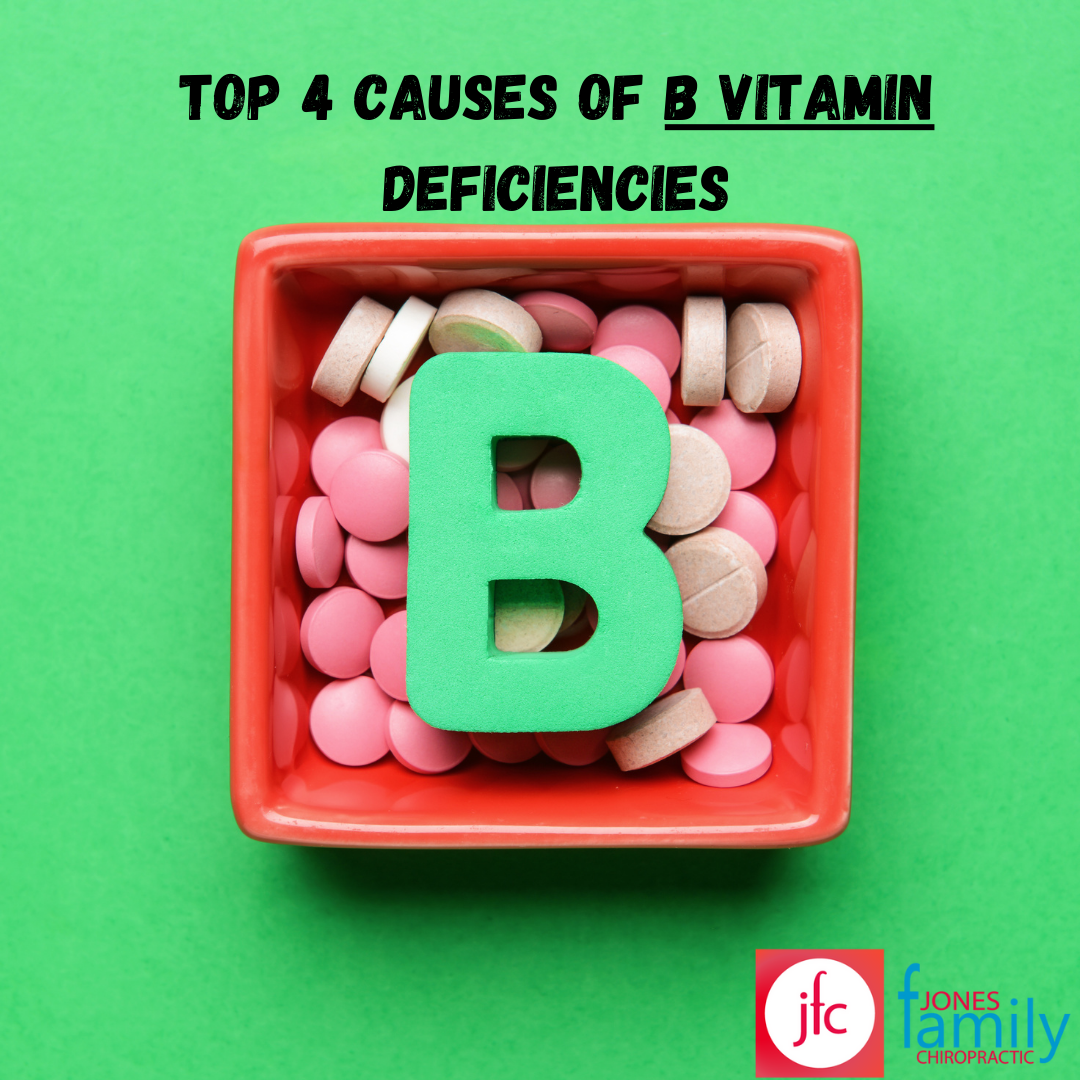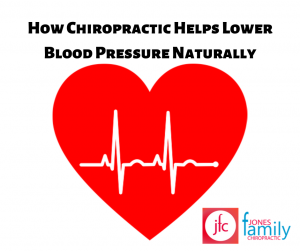Podcast: Play in new window | Download
Vitamins are found naturally in food and needed in small amounts by the body for various functions, including the making of red blood cells, supporting the immune system, and boosting energy production.
There are 13 essential vitamins that our body needs and the B-group vitamins make up eight of them.
Here at our Chiropractic office, we’re concerned about what you take in your foods to maintain optimal health. We’ll show you all you need to know about the B-vitamins, so you’re sure of what you’re consuming, especially in form of supplements.
What are B- vitamins?
B-vitamins are water-soluble vitamins essentials that support several metabolic processes in the body. However, most B vitamins cannot be synthesized or stored by the body. This means you must consume them in your diet.
Types of B vitamins
The eight types of B vitamins include:
Thiamine (B1)
Thiamine, also called vitamin B1, has a strong role in nervous function and helps covert glucose into energy.
Some good food sources of thiamine include legumes, whole meal cereal grains, seeds, yeast, pork, nuts, and wheat germ.
Riboflavin (B2)
Riboflavin supports vision and skin health, but it is primarily involved in energy production
Some good food sources of vitamin B2 include yogurt, milk, cottage cheese, egg white, leafy green vegetables, kidney, yeast, liver, meat, and wholegrain breads and cereals.
Niacin (B3)
Niacin or vitamin B3 is needed for the body to convert fat, carbohydrates, and alcohol into energy. It also supports the digestive and nervous system, and maintains skin health.
Niacin is heat stable, only a little is lost in cooking.
Some good food sources of Niacin include poultry, meats, fish, eggs, wholegrain breads and cereals, milk, mushrooms, nuts, and all-protein-containing foods.
Pantothenic acid (B5)
Pantothenic acid is essential for proteins, fats, and carbohydrates metabolism. It is also needed to produce steroid hormones and red blood cells
Some good food sources of pantothenic acid include meats, liver, milk, eggs, kidneys, legumes, peanuts, and yeast.
Pyridoxine (B6)
Pyridoxine is also needed to metabolize carbohydrates and protein, and it is essential in the formation of red blood cells and certain brain chemicals. This vitamin influences immune function, brain processes and development, and steroid hormone activity.
Some good food sources of vitamin B6 include legumes, cereal grains, fish and shellfish, fruits, liver, meat and poultry, green and leafy vegetables, and nuts.
Biotin (B7)
Biotin is essential for fat synthesis, energy metabolism, glycogen synthesis, and amino acid metabolism. However, taking too much biotin can contribute to raise blood cholesterol levels.
Some good food sources of biotin include egg yolks, liver, chicken, mushrooms, cauliflower, peanuts, and yeast.
Folic acid or Folate (B9)
Folic acid is the synthetic form of folate, and it is needed for red blood cells formation. It is also helps in the development of the fetal nervous system, DNA synthesis and cell growth.
Every woman within childbearing age needs to take diets rich in Folate.
Some good food sources of this vitamin include legumes, green leafy vegetables, poultry, cereals, eggs, liver, and citrus fruits.
Cobalamin (B12)
Cobalamin helps in red blood cell formation, the production and maintenance of the myelin surrounding nerve cells, and breaking down of some amino acids and fatty acids to produce energy.
Some good food sources of this vitamin include meat, liver, cheese, eggs, cheese, milk, and almost anything of animal origin.
It is important to always eat a balanced diet containing an adequate amounts of these vitamins. All the B vitamins are water soluble, but not stored in the body. So any excess amount is excreted in the urine. This means you need to constantly replenish your body with this vitamin from your diet.
You may also get vitamin B in supplemental form to ensure you’re getting the amount your body needs on a daily basis, but it is advisable to always get approval from your doctor or dietician before starting.
We shall discuss the symptoms of B vitamin deficiency in our next article.
You can consult Dr. Jason Jones at our chiropractic office at Elizabeth City to learn more about the benefits of adding the B-group vitamins to your diet.




